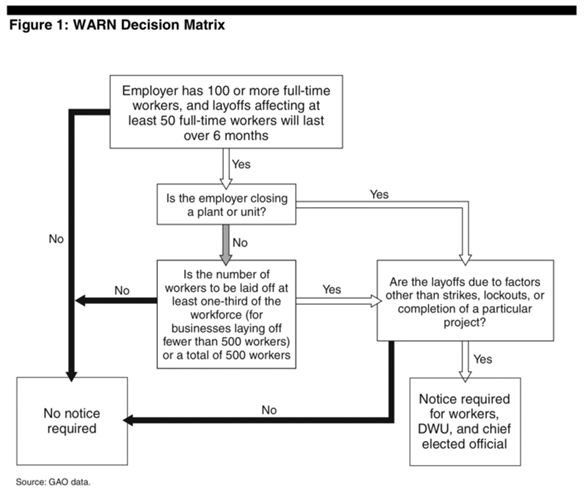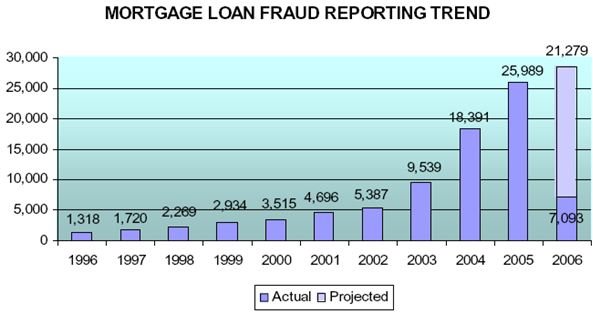Understanding the Whistleblowing Laws: How They Protect Whistleblowers
The Incorporation of Anti-Retaliation Clauses to Protect Whistleblowers
Whistleblowing laws were conceptualized and instituted to protect those who report fraud and abuse of authority, not only in the workplace, but under any condition or situation that jeopardizes the safety and well-being of workers, and of the public as a whole, including that of the environment as matters of national interests.
The protection issue deals mainly against acts of retaliation by the employer or any entity who becomes the subject of a whistleblowing act. Anti-retaliation clauses were incorporated into these laws in order to alleviate the fear that could hold back an individual from reporting fraudulent or abusive acts.
But then, one would ask, “What constitutes retaliation in the workplace?”
Understanding the Anti-Retaliation Acts of the Fair Labor Standards Act (FLSA)
Acts of retaliation are also called adverse employment actions by the FLSA; they refer to discriminating actions toward an employee who filed a complaint against an employer. This could be anything in connection with the employee’s exercise of rights under the FLSA guidelines. Such exercises may include an employee’s judgment that the wage being granted by the employer, as well as the number of work hours enforced by the employer, violate the policies under the Fair Labor Standard Acts.
FLSA law prohibits the employer from taking retaliatory acts or adverse employment actions against an employee, which include but are not limited to:
(1) Terminating the employee for engaging in protected activities; “protected activities” may mean any of the following:
-
Participating in audits conducted by the Department of Labor (DOL) or in communicating with DOL pertaining to queries about wage entitlement during staff meetings.
-
Campaigning against new or revised policies for overtime pay by sending out petitions.
-
Formally requesting a raise.
-
Formally testifying against criminal proceedings against violation of FLSA provisions.
-
Formally communicating and providing information to investigators of the Wage and Hour department.
(2) Constructive dismissal by creating working conditions that make it unbearable for the employee to work effectively and efficiently, to which the employee’s only logical course of action is to resign. To further describe constructive dismissal, said adverse employment actions will greatly impact the wages, the job title, job responsibilities, and privileges and benefit levels by a degree of materiality, which could frustrate the employee from rendering productive work.
(3) “Blacklisting” or curtailing the employee’s ability to find work with another employer. This is usually done by maliciously disclosing to the potential employer the employee’s exercise of rights, by complaining about wages or hours of work that the latter deems as unfair.
(4) Filing an indemnity protection claim against an employee in preparation for adverse employment moves or retaliatory actions against a complaining employee.
(5) Reporting an employee as an alleged illegal alien, which is prohibited even if said employee is an undocumented alien. This is to preclude the employer’s possible exploitation of undocumented aliens as workers, where it will present economic benefits to hire them and then report their illegal status in case they complain about poor wages or excessive hours of work.
How Does FLSA’s Anti-Retaliation Act Apply to a Whistleblower?

FLSA’s Anti-Retaliation Act was developed and upheld as applicable to protect employees who complain to higher authorities about illegal activities, wrongdoings, or any abuse of authority or privilege, in order to preserve public safety and the good of the nation as a whole.
Through previous court decisions and to provide exceptions to the “employment at will” principle in hiring and employing, upholding the provisions of the Anti-Retaliation Act of FLSA prevented employers from by-passing their legal and moral obligations.
Over the years, national interests as well as public good and safety were used as higher standards over the employee’s right to file complaints. The element of loyalty between employer-employee relationships is terminated, if national and public policies are the considerations.
In cases of wrongful termination, whistleblowing acts are often the main reasons by which an employee could win his case, provided that there are reasonable proof and legitimate grounds to support the act of blowing the whistle against an employer as a prelude to the employee’s termination. Once proven, the employer’s wrongful termination constitutes the forbidden retaliatory act or adverse employment action.
Please continue on page 2 for more on Whistleblowing Laws.
The Creation of Specific Laws to Address Acts of Whistleblowing and Retaliation

The complexities of issues involving national interests and public good, as well as safety, called for laws that define the exact violations being committed by companies or employers. This likewise prevented employees from using whistleblowing to further their own interests, usually monetary, under the pretext of national good and public safety.
Today, there are more than fifty-five laws that specifically outline the guidelines for acts of whistleblowing and the conditions present in order to enforce anti-retaliation acts against employers.
In addition, different states enacted their own laws to protect both the employer and the employee in the misuse of whistleblowing laws.
Some of the Major Employment Statutes Incorporated with Whistleblowing Laws
The Civil Rights Act of 1866
This law provides the basic foundation of the whistleblowing act exercised by an individual, who does not have to be an employee of a company to act as a whistleblower. It specifically states the right of every person born in the United States, regardless of race and color, to “enter into contract, file a lawsuit, testify in court ,and own private property…”
The National Labor Relations Act (NLRA) and the Occupational Safety and Health Acts (OSHA)
This is under the administration of the National Labor Relations Board (NLRB) which acts independently as a federal agency to administer the primary laws governing employer-employee relationships particularly in labor disputes. In order to address issues pertaining to whistleblowing acts and those creating strain and tension between employer and employees, the NLRB through its Procurement and Facilities Branch created the Occupational Safety and Health Acts. These enactments govern safety- and health-related concerns that the employer should maintain in its work facilities and serve as basis for the employee’s complaints in conjunction with the guidelines of the NLRA.
Other Employment Related Laws & Statutes
Anti-retaliation clauses in whistleblowing laws were incorporated in the following:
- Age Discrimination and Employment Act,
- Americans with Disabilities Act,
- Uniform Health & Safety Whistleblower Protection Act,
- 1978 Whistleblower Protection Act,
- Public Interest Disclosure Act (1998), Senate 2002: S1785
- 18 USC 1505 Federal statute that protects witnesses in congressional investigations from intimidation
- 5 USC 7211specifically guarantees federal employees the right to provide congressional members with information
- Senate 2002: S1785 Paul Revere Freedom to Warn Act
Please continue on page 3 for more on Whistleblowing Laws
Environmentally Related Statutes
.
The following are the environmental statutes that provide specific protection guidelines to employees or any person who take on the role of a whistleblower. These are provided as encouragement to individuals to act as the federal government’s eyes and ears against employers or companies who violate the nation’s environmental laws under the Code of Federal Regulations:
- Water Pollution Act or Clean Water Act
- Safe Drinking Water Act
- Toxic Substance Control Act
- Solid Waste Disposal Act
- Clear Air Act
- Energy Reorganization Act of 1974—including Atomic/Nuclear Energy
- Comprehensive Environmental Response, Compensation and Liability Act
The False Claim Acts

This law protects employees or individuals who report employers or assist the government in bringing to court the employers or corporations who file false claims for reimbursements or remunerations for government contracts where inferior quality was supplied as a means to exact higher financial gains from out of government procurement deals.
Other false claims include spurious claims for medical care costs, fraudulent mortgage loans, nursing home frauds, violations of bidding laws, and similar situations.
The Sarbanes-Oxley Act
This law primarily protects investors against fraud committed by publicly traded corporations by way of misleading financial statement reports, insider trading, non-disclosure of executive compensation, and profits and all other violations as cited under the Securities and Exchange Commission. Any employee or individual who acts as a whistleblower to corporate fraudulent acts, whether employed by the corporation or regulatory bodies like the SEC, are provided with protection under the Sarbanes-Oxley Act for retaliatory actions committed by the perpetrators of corporate fraud.
The Drawbacks of Numerous Whistleblowing Laws
Not all whistleblowers are aware of the prescriptive periods, which whistleblowers are required to observe when filing claims for protection. There are some laws that could expire as shortly as “within 30 days from the date the retaliatory actions were taken against the filing employee."
In some instances, whistleblowers have lost their cases due to improper procedures or filing under the wrong jurisdiction or statute. In line with this, it is recommended that would-be whistleblowers seek help from non-profit whistleblowers’ organizations for adequate and appropriate legal advice about whistleblowing laws before taking any steps.
Reference Materials and Image Credit Section
Reference Materials:
- Retaliation Under the Fair Labor Standards Act — https://www.bna.com/bnabooks/ababna/annual/99/annual46.pdf
- Retaliation and Whistleblowers — https://books.google.com.ph/books?id=e9w0drY4qHoC&pg=PA259&lpg=PA259&dq=how+anti-retaliation+act+of+FLSA+applies+to+whistle+blowing&source=bl&ots=K3gBNcfQFQ&sig=L2xf9piZlZBat9rkwTcysWlMH1U&hl=en&ei=0napTPqzFYekvgOWyYW5DA&sa=X&oi=book_result&ct=result&resnum=10&ved=0CEgQ6AEwCQ#v=onepage&q&f=false
Image Credits:
